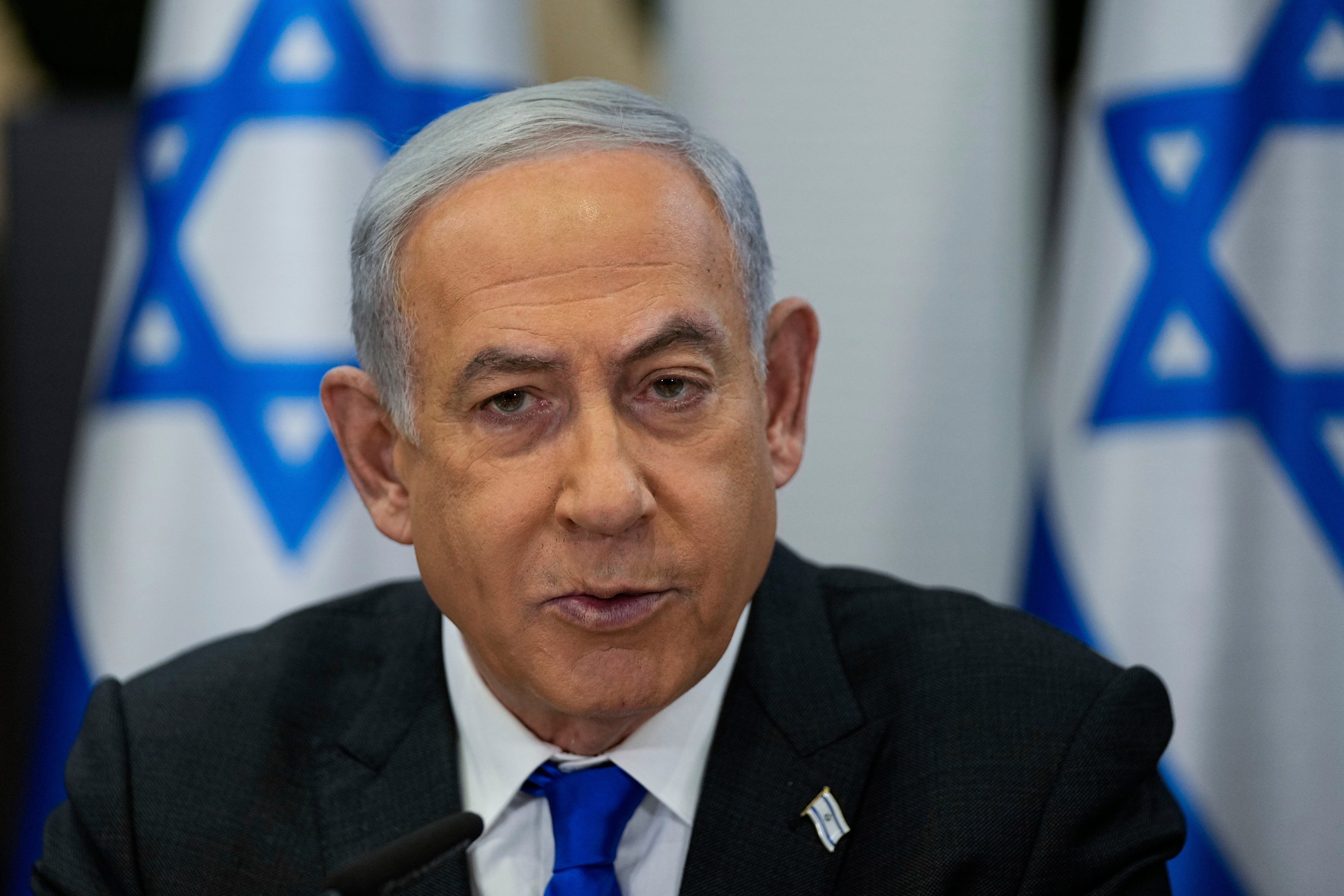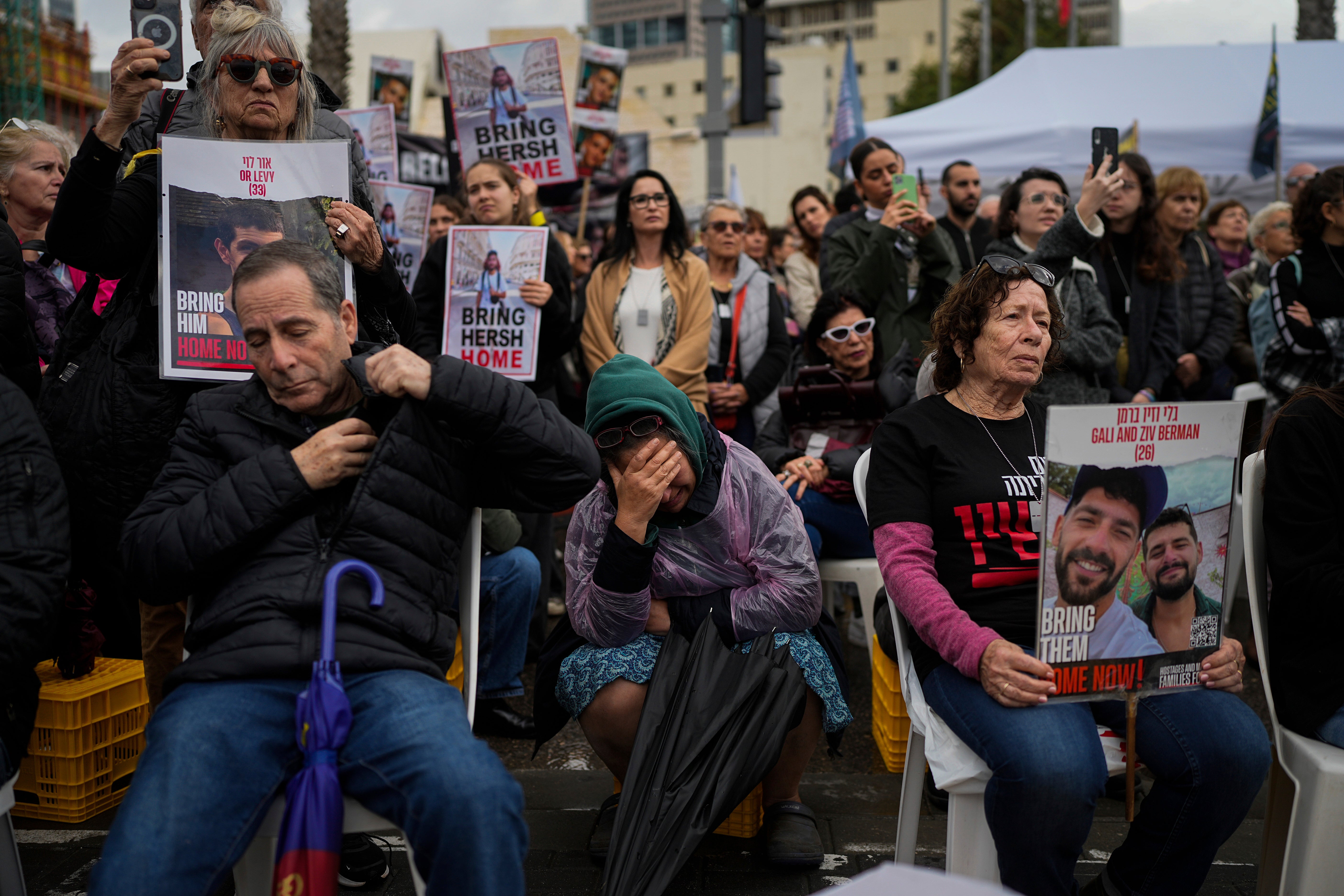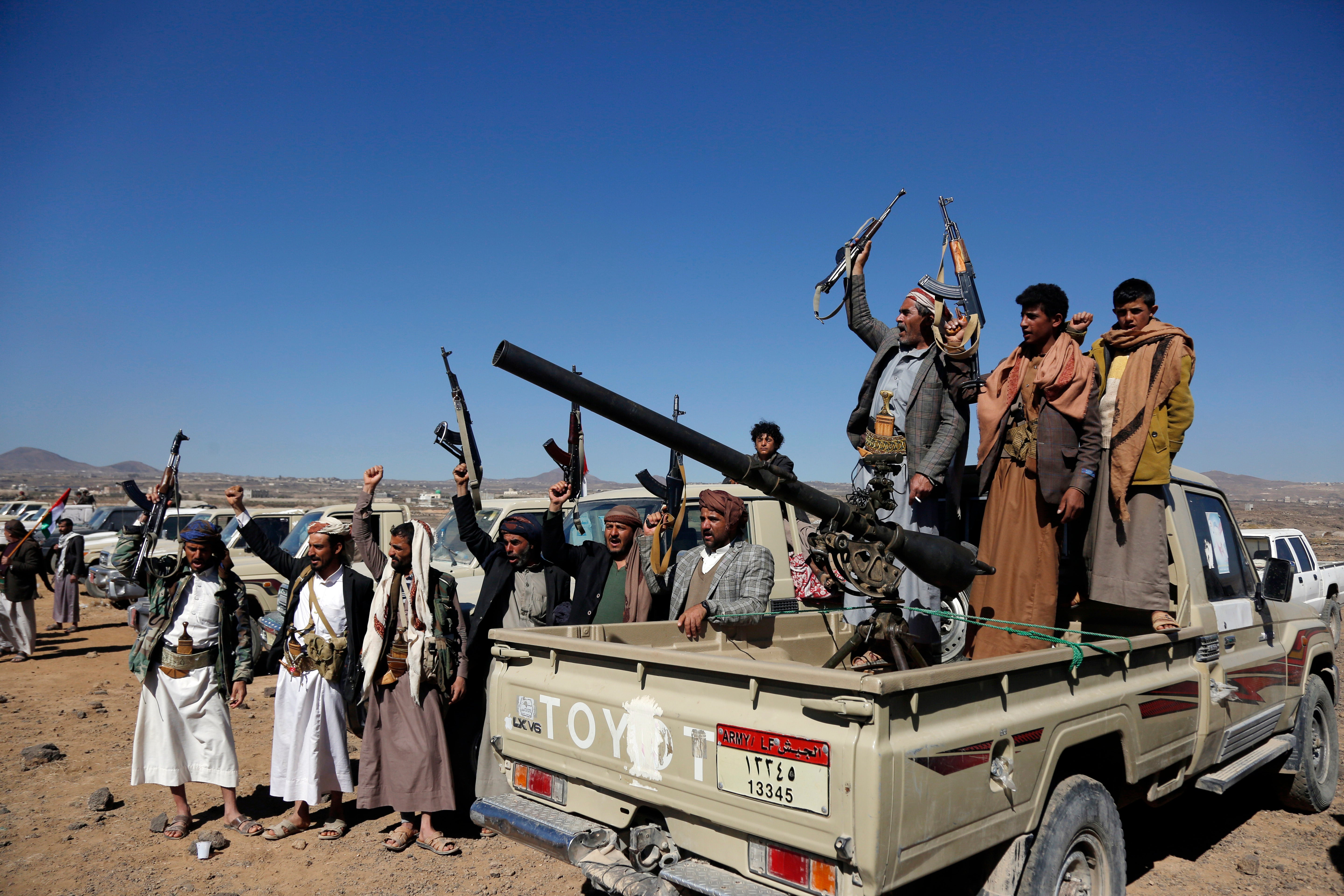100 days on, what the future holds for Israel’s war in Gaza as pressure mounts on Netanyahu
With growing international calls for a ceasefire in Gaza, Israeli hostage families calling for their loved ones to be brought home and increasing fears of a wider regional war, the Israeli prime minister should expect little respite as the war on Hamas moves past 100 days, writes Tom Bennett

As Israel’s war against Hamas inside Gaza moves past 100 days, the airstrikes continue to fall across much of the territory, the intense fighting on the ground goes on, and aid agencies keep calling for more and faster aid deliveries to help desperate residents.
But the pressure is growing on Prime Minister Benjamin Netanyahu over the war, which was triggered by a Hamas attack inside Israel on 7 October that killed around 1,200 people and saw another 240 people taken hostage. The airstrikes, ground operations and blockade that followed from Israel have killed more than 24,000 people, according to health officials in Hamas-run Gaza.
The United States, Israel’s staunchest ally, said on Sunday that “it’s the right time” for Israel to scale back its military offensive – a statement that followed last week’s comments by US secretary of state Antony Blinken calling for a “pathway” to a Palestinian state. China echoed those calls, urging “a specific timetable and road map for the implementation of the two-state solution”.
But that will be difficult. “There is a zero per cent chance that a Netanyahu government – or even a less extreme successor government – will be willing to embark on any sort of path toward a Palestinian state,” Khaled Elgindy of the Middle East Institute think tank told The Independent.
For his part, Netanyahu has come out swinging over the weekend, saying: “No one will stop us [in the mission to defeat Hamas] – not the Hague, not the axis of evil, and no one else.”

Yet for some inside Israel, and a number of nations around the world, that defiance is out of touch with reality. Reports have emerged in the Israeli media of fighting within the security cabinet that is overseeing the war. The far-right national security minister Itamar Ben-Gvir, who has been sidelined from war decisions, has traded criticism with Benny Gantz, Israel’s centrist former defence chief.
Over the weekend, large demonstrations took place in Tel Aviv in support of the remaining hostages, who have now spent more than 100 days in Gaza. Some of the freed hostages took to the stage, with one, Moran Stela Yanai, asking the crowd: “How can we have hope after 100 days?”
Later, some demonstrators began calling for Netanyahu to go, following a flurry of similar anti-government protests that have taken place in the past week – with some donning prison uniforms to call for Netanyahu to be jailed. Netanyahu faces unrelated corruption charges, hearings over which resumed in December. He vigorously denies all the allegations.
Many of the hostage families have declined to criticise the government since the beginning of the war, in an effort to promote wartime unity. But with the war now into its fourth month, and with more than 100 hostages still held by Hamas, they are beginning to lose patience with the government’s strategy.
“It is clear to us that the release of the abductees will take a long time. We are preparing for a long struggle,” said Aviram Meir, uncle of Israeli hostage Almog Meir-Jan.
A reminder of the pain was provided by Hamas on Sunday and Monday, in cruel video footage of Israeli hostages Noa Argamani, 26, Yossi Sharabi, 53, and Itai Svirsky, 38, questioning what could happen to them. A later video purported to show the dead bodies of two of the hostages, Sharabi and Svirsky, after warning that they might be killed. The video claimed the pair had been killed in an Israeli airstrike, a cause Hamas has repeatedly used in its propaganda videos. The Israeli defence minister, Yoav Gallant, called such videos “psychological abuse”.
Some women and children were released in exchange for Palestinian prisoners held in Israeli jails during a temporary ceasefire in November. But more than 130 hostages are still being held by Hamas and other groups in Gaza.

Speaking at a 24-hour rally held at what has been dubbed Hostages Square in Tel Aviv on Sunday, Argamani’s mother, who is terminally ill, pleaded to see her daughter before she dies.
Liora Argamani, 61, said: “I want to say thank you to the people of Israel, and I love you very much. I hope that I will be able to see Noa before my last day.”
Last week, the Israeli prime minister’s office said that a deal had been reached with Qatar to let medicine into Gaza for the hostages, and there have been media reports of some progress in talks to possibly release more hostages, but there is no concrete news yet.
Inside Gaza, the strikes continue. Twelve Palestinians were killed and others wounded in an Israeli airstrike overnight on a house in Gaza City in the north, health officials in the Hamas-run territory said; meanwhile plumes of smoke rose above the main southern city of Khan Younis, shelled by Israeli tanks.
The Hamas-affiliated Palestinian Press Agency, Safa, reported fierce clashes between Hamas and Israeli forces in Khan Younis, while Israeli tank barrages were also reported near the Al-Bureij and Al-Maghazi refugee camps in central Gaza. Palestinian health officials in Nasser Hospital in Khan Younis said later on Monday that seven people were killed and others hurt in an Israeli missile strike near to the hospital.
In a statement, the Israeli military said it had killed two Palestinian fighters in an airstrike on their vehicle as it was transporting weapons in Khan Younis, and also raided a Hamas command centre in the city and struck two arms caches.
Last Thursday – at the Hague – South Africa launched a landmark case accusing Israel of genocide in Gaza. Defending their position, Israel accused South Africa of distorting facts, arguing that the case should never have been brought. The International Court of Justice, the UN's top court, is now considering the case, although a ruling could take months.

Concerns are also growing about the conflict spilling out into a wider war. On Monday, Israeli police said two Palestinians had been arrested after coordinated car-rammings in the central Israeli town of Raanana, killing a woman and injuring 17 other people. The two suspects were from the same family in Hebron in the Israeli-occupied West Bank and at least one of the vehicles used in the attacks had been stolen, police said.
In the Red Sea, a missile has struck a ship off the coast of Yemen. It was apparently fired by Houthi rebels, who are part of what Iran calls an axis of resistance alongside Hamas and Hezbollah in Lebanon. The latter two are engaged in cross-border strikes on the Israeli-Lebanese border. Both the Houthis and Hezbollah have made clear their support for Hamas and the Palestinian people. The UK joined the US in targeting Houthi locations in Yemen last week as part of efforts to ensure international cargo vessels can travel through the vital shipping route after assaults by the Iran-backed militants.
Netanyahu has said that Israel would have no problem hitting Hezbollah harder if it increases attacks. It’s part of his rhetoric against Hamas, but such confident talk will only get him so far when it comes to domestic politics.
At the start of the war, many Israeli WhatsApp groups that had originally been set up earlier in 2023 as part of the mass protest movement against Netanyahu’s controversial judicial reforms – recently partly struck down by the Supreme Court – instead rallied around the war effort, repurposing themselves as coordination points for food and aid to be delivered to reservist troops and Israeli refugees.
Now, some are beginning to simmer with anti-government sentiment once more. A poll released on 2 January by the non-partisan Israel Democracy Institute showed just 15 per cent of Israelis want Netanyahu to remain in office after the war ends – a finding which echoes other polls that show his popularity has plummeted.
“Netanyahu is finished,” former Israeli hostage negotiator Gershon Baskin told The Independent. “The public is rising against him. More and more people, even from within his own party, say that he's lost control of the country and lost control of the party.
“I think that the public has lost confidence, if it even had confidence, in Netanyahu’s handling of the war. We see many, many more people talking about Netanyahu’s need to prolong the war beyond what it needs to be in order to save his own political skin.”
And with international pressure for a ceasefire growing, Israeli families wanting hostages home and huge question marks left unanswered about the future of Gaza, the pressure on Netanyahu and Israel is only going to grow.






Join our commenting forum
Join thought-provoking conversations, follow other Independent readers and see their replies
Comments